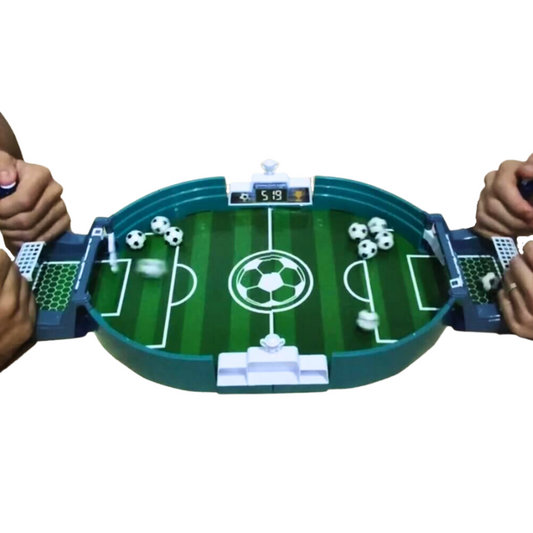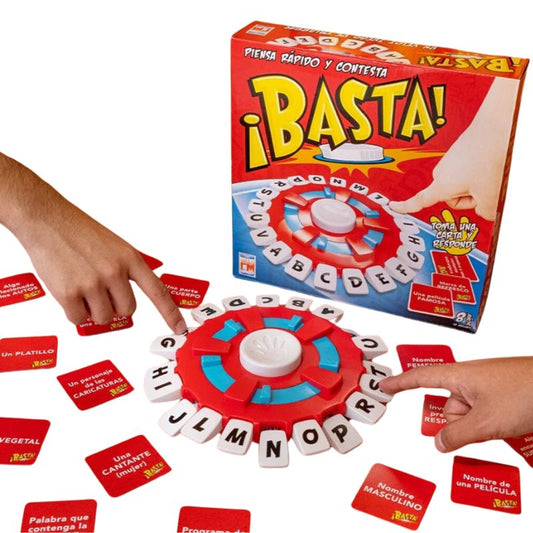Cheating Moth - Cheating Board Game
Cheating Moth - Cheating Board Game
- Free shipping with delivery in 5-10 days
- Express shipping 48/72h +5,99€
- Entrega Urgente 48/72h disponible (+3,99€)
Couldn't load pickup availability
- Cash on delivery available for express deliveries (+2.99€)
Payment and returns
Payment and returns
You can pay by card or Paypal. If you usually use Google Pay or Apple Pay for card payments, you will see a button to make the payment that way directly.
You can reach us to cancel your order once it has been placed or manage the return up to 14 days after delivery, provided that the product has not been visibly damaged by the customer.
Any questions?
Any questions?
If you have any questions, you can write to us on WhatsApp, where it is easier for us to respond sooner.
By clicking here, a chat with us will open directly.
For post-purchase questions, you can send us an email with your order number tocontacto@stopantallas.com . Remember that you can track your order at Track your order !
Trying to win without cheating is very difficult!
Cheating Moth is a board game that consists of running out of cards by making sure that others don't notice your cheating.
All the cards are dealt, one player starts and the next has to draw cards one number higher or one number lower.
Some cards have special effects, but the Trickster Moth cannot be played, it must be hidden without the Guardian noticing.
Here you can see a quick guide on how to play:
3 to 5 players can play, it is a great way to spend quality time with family or friends .
Includes cards, instruction manual and box.
- Packaging with less cardboard to reduce its use and the size of the shipment
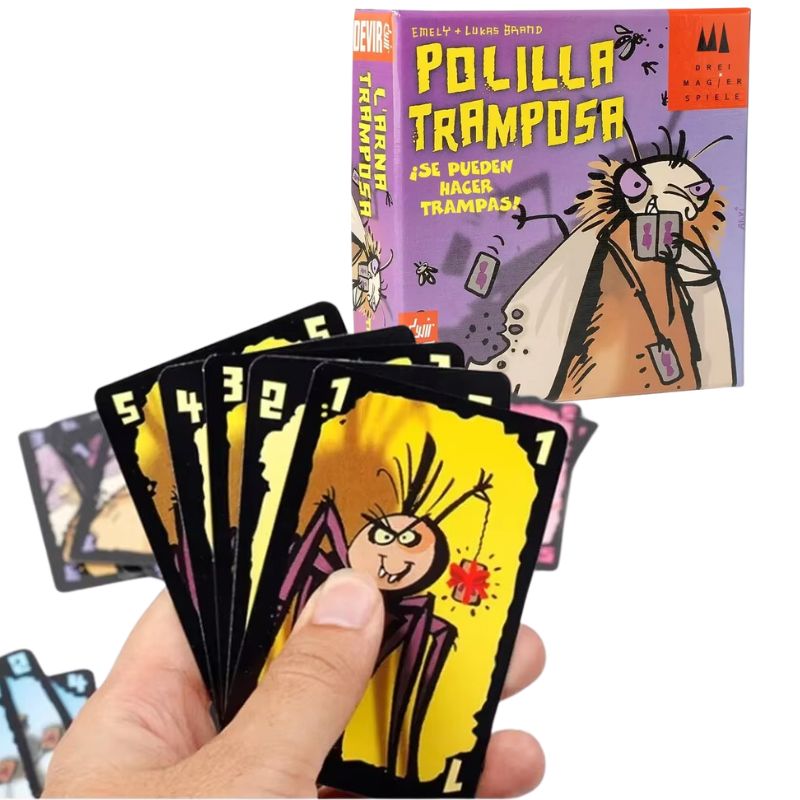
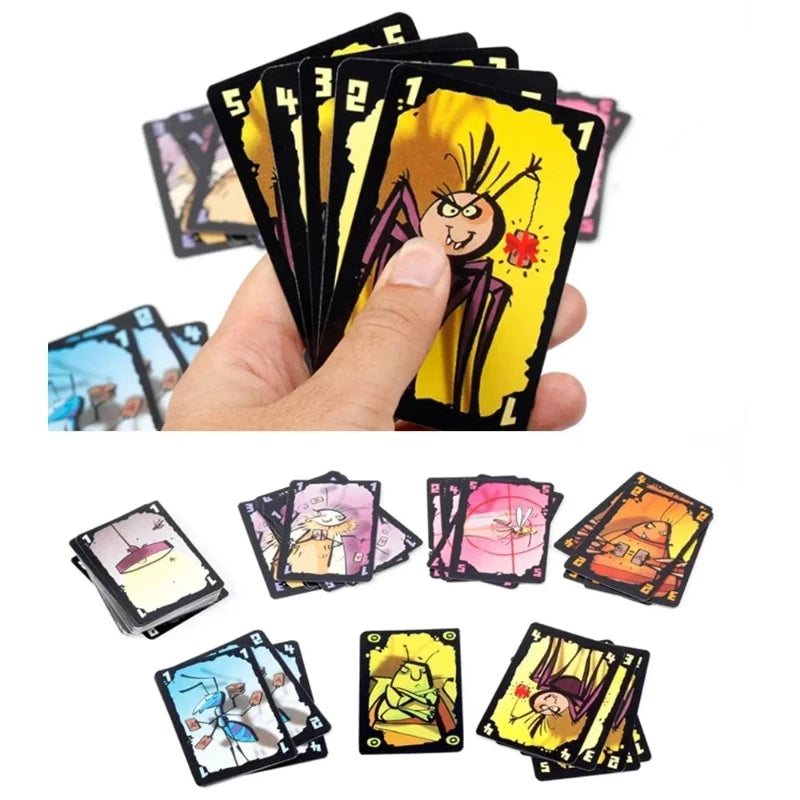

The importance of reducing screen time
They harm the eyesight
Too much screen time strains the eyeballs and can create/aggravate vision problems, especially in children.
The blue light emitted by screens is the cause, and it is more dangerous when the screen is close to the eyes.
Concentration problems
Much of the content on social media (especially that made for children) is designed to achieve the longest possible consumption time, which creates the habit of spending hours switching from one video to another without using creativity.
If the brain gets used to receiving dopamine simply by looking at a screen, it will be increasingly difficult to entertain itself with things that require effort.
Lower quality of sleep
Prolonged use of screens during the day keeps the brain active and makes it difficult for it to enter "rest mode" and maintain it at night (in both adults and children).
Games and toys by age
-

From 3 to 6 years
Gift ideas. Games and toys that boys and girls aged 3 to...
-

From 6 to 9 years old
Games and toys that boys and girls aged 6 to 9 can...
-

From 9 to 12 years old
Games and toys that boys and girls aged 9 to 12 can...
-
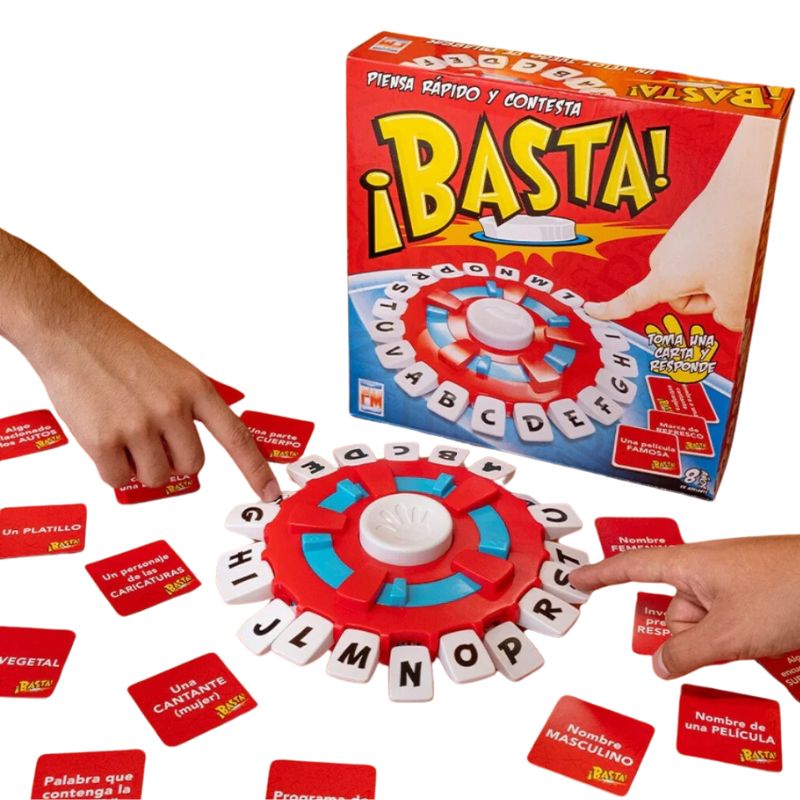
For all ages
New for your board games! - Games that you can enjoy playing...





